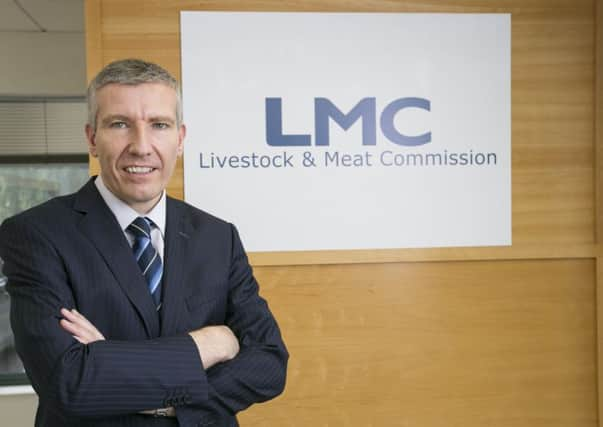A crucial element in global sustainability


“Sustainability is a word that has become part of the daily vocabulary and practice of the entire red meat supply chain, not just in terms of environmental sustainability but also social and economic sustainability,” Ian Stevenson said.
“Some Non-Governmental Organisations (NGOs) and lobby groups will argue that the agricultural sector is not as sustainable as it could be. However, we (LMC) would say that livestock farming is a crucial element in the sustainability of a global population that is anticipated to reach nine billion by 2050.
Advertisement
Advertisement
“This is due to the fact that ruminant livestock can easily convert human indigestible grass into valuable sources of nutritious protein that is perfect for human consumption. Livestock can also efficiently maintain and manage agricultural lands that cannot grow arable crops which in turn increases soil organic matter and crucially, the carbon sequestration potential and biodiversity of those lands.”
An active member of the Greenhouse Gas Implementation Partnership (GHGIP) and the Sustainable Agriculture Initiative (SAI) Platform, LMC is working in partnership with stakeholders across the entire value chain to encourage sustainable practice and to reduce the carbon intensity of red meat production. LMC also owns and manages the Northern Ireland Beef and Lamb Farm Quality Assurance Scheme (FQAS) which focuses heavily on sustainability in its standards.
Ian continued: “When we look at the beef and lamb sector in Northern Ireland, we have a very good story to tell about the sustainability credentials of our industry. Almost 100 per cent of our beef and lamb at slaughter has been independently assured through FQAS to a range of quality parameters covering animal welfare, care for the environment and food safety.
“Our livestock and red meat is traced using one of the most sophisticated traceability systems in the world (APHIS) and the compound feed for our livestock is supplied through the world leading Food Fortress Initiative. We have well co-ordinated animal health programmes focused on the reduction of losses through animal disease and we have excellent advisory services in CAFRE to help benchmark performance and up-skill our many thousands of family run farms. Furthermore, we have some of the most professional and knowledgeable farmers and processing companies in the world, with an abundant water and forage supply which plays a key role in feeding a growing global demand for animal protein.
Advertisement
Advertisement
“Finally, we have passionate and forward thinking people in industry, public service, research and support sectors who are helping to drive our ambitions.
“One thing we are not as good at in Northern Ireland as we should be is telling others outside the region just how good we are when it comes to sustainability. That has to be a key strategic focus for our sector going forward to ensure that we maintain a sustainable industry in this ever more competitive global marketplace.”